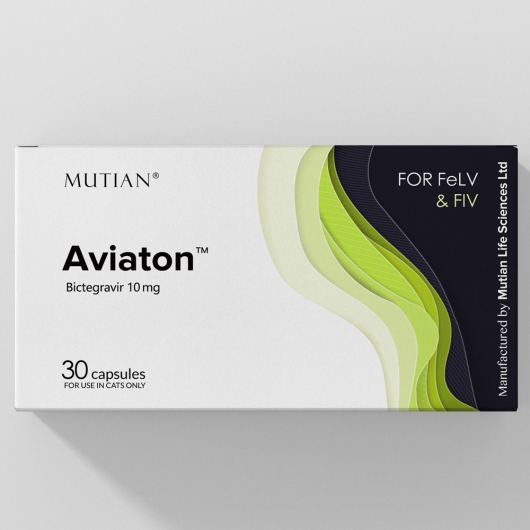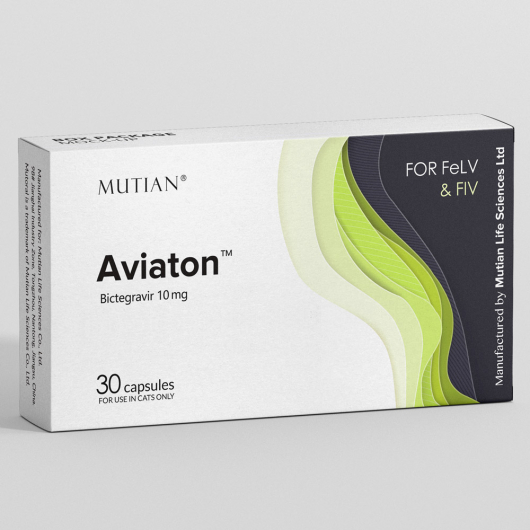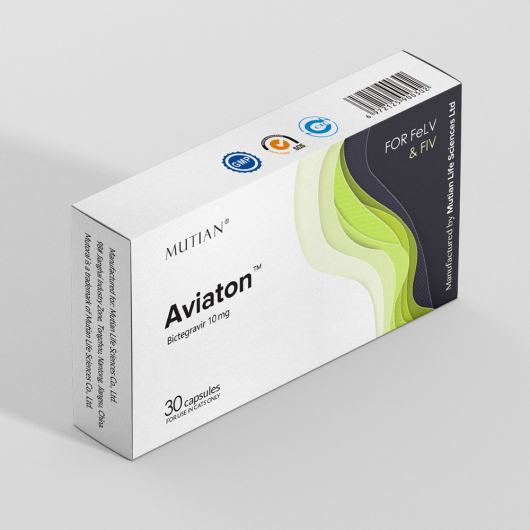Feline Leukemia Virus (FeLV), a member of the subfamily of retroviral tumor-causing RNA viruses, contains single-stranded RNA that is transcribed by the action of reverse transcriptase into DNA, a provirus that integrates into the cellular genome of cats.
Globally about 5% of cats are infected with FeLV, and in some countries up to 20%.
The consequences of FeLV infection depend on the age and immune status of the cat, the concentration of the virus, the pathogenicity of the virus and the stress of the infection.
Young cats have the highest susceptibility to FeLV and can gradually gain resistance to the virus as they mature, but more than 50% of poorly resistant cats will still develop disease after infection with the virus.
FeLV is clinical signs vary widely, but often include:
- Dyspnea
- Lethargy
- Anorexia
- Weight loss
- Fever
- Gingivitis/stomatitis and abscesses that are difficult to heal.
There is no specific treatment for this disease and death is almost inevitable once the disease develops.
According to American scientists, the human anti-AIDS drug raltegravir has shown good inhibitory effect on FeLV in vitro.
Based on this finding, we have conducted an in-depth study of MT-5829, a novel long-acting integrase inhibitor designed to effectively inhibit FeLV replication in vivo by inhibiting FeLV integrase without harming normal cells, and therefore has high selectivity and low toxicity.
Based on preliminary data, MT-5829 has largely reduced the viral titer of FeLV and improved the quality of life of affected cats. The next step will be to recruit more FeLV-infected cats for a double-blind placebo-controlled trial.
Feline Immunodeficiency Virus (FIV) is the causative agent of feline AIDS (FAIDS). In its natural state, Feline Immunodeficiency Virus can infect more than 20 species of cats, including domestic cats, wild cats, lions, tigers and leopards.
At this stage, FIV has become widespread worldwide, and even the infection rate of stray cats in individual countries is 100%.
Similar to HIV infection in humans, FIV does not cause specific clinical symptoms in the host at the beginning of the infection process, but the process of virus replication in the body gradually causes immunosuppression in the host, resulting in opportunistic infections including other viruses, bacteria, parasites, etc.
Common symptoms in cats infected with FIV are:
- Stomatitis.
- Gingivitis.
- Persistent fever.
- Decreased appetite.
- Weakness.
- Progressive emaciation.
- Elevated body temperature.
- Skin pimples.
- Skin disease.
- Urinary tract infections.
- Upper respiratory tract infections and a generalized defect in CD4+ T lymphocyte function.
Unfortunately, there are still no treatment options available worldwide that can target FIV.
MT-2602 is a novel, selective inhibitor of the FIV capsid that disrupts the FIV capsid, a multimeric shell necessary for viral replication, at multiple stages of the viral life cycle.
MUTIAN is developing it as a potential long-acting therapy. Results from preliminary clinical studies of the subcutaneous formulation show that MT-2602 has potent antiviral activity and rapidly reduces viral load after a single subcutaneous dose.
At day 10 post-dose, FIV RNA was significantly lower in patients in all dose groups treated with MT-2602 compared to placebo. MT-2602 has a half-life of approximately 12 days, and high and low-fat diets had no effect on PK. These data support the development of MT-2602 as an oral weekly formulation without consideration of food effects. MT-2602 is generally safe and well tolerated, with no cats experiencing serious adverse effects in the current clinical studies.



